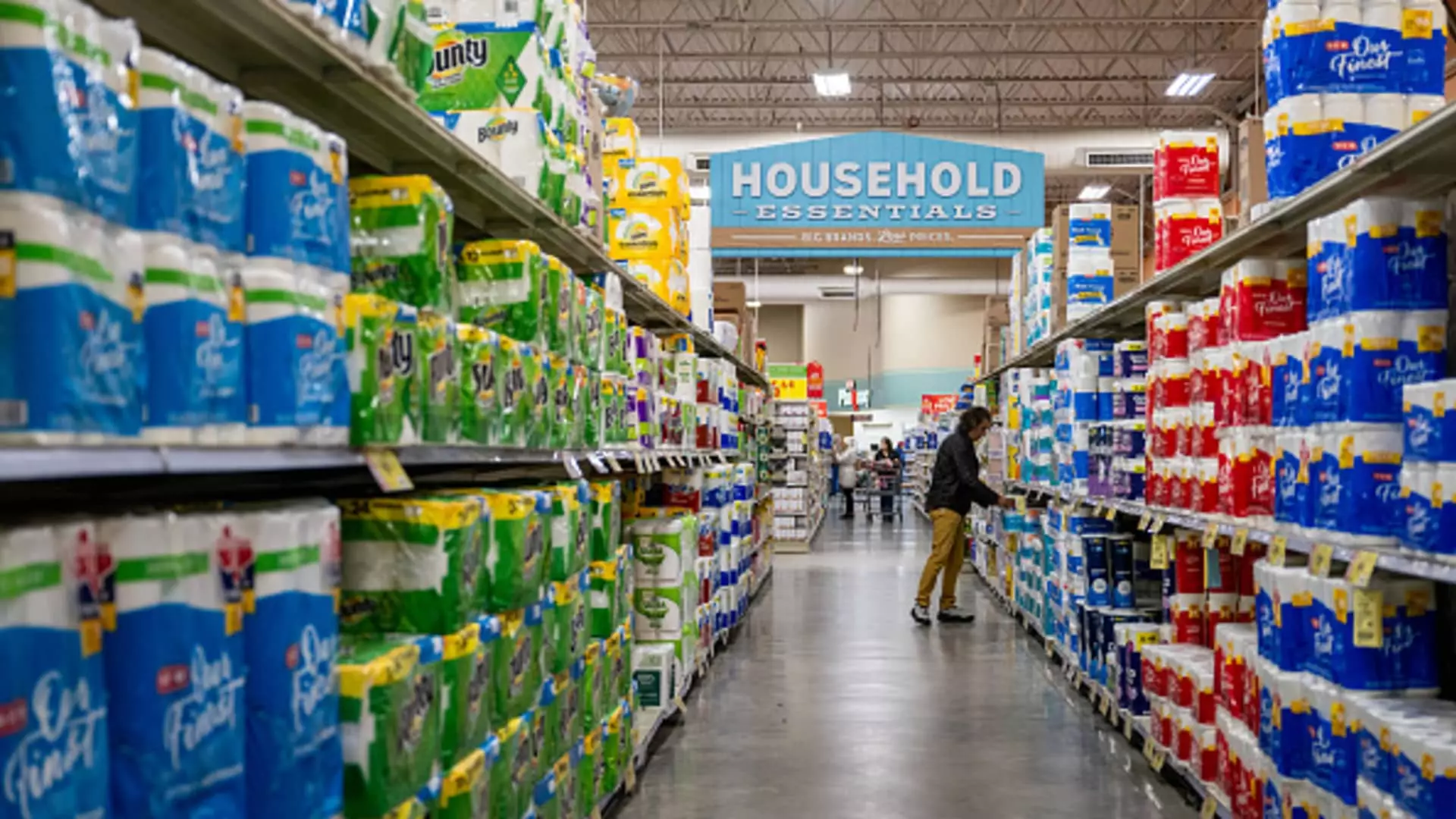The recent implementation of tariffs by the Trump administration is not a mere economic maneuver; it’s a ripple effect that is set to touch every American household profoundly. Shoppers should brace themselves as staple items like coffee, bananas, vanilla, and toilet paper become pricier. The administration’s agenda to revive American jobs is commendable, but it falls short in recognizing the complexities of global supply chains. The Consumer Brands Association (CBA) makes a compelling argument when they highlight that many essential ingredients simply cannot be sourced domestically, raising a critical concern: is “America First” really prioritizing American consumers, or is it just a political slogan with unintended consequences?
The Pitfalls of Protectionism
While the intention behind tariffs might seem noble—bringing jobs back to the U.S.—the reality could prove to be disastrous for everyday consumers. Key ingredients like coffee and bananas come from regions that are not only climatically special but also integral to American diets. The CBA reports that the U.S. has become heavily reliant on imports for tropical fruits, with Guatemala alone accounting for nearly 40% of banana imports. Tariffs, such as the new 10% on Guatemalan bananas, do not merely punish foreign economies; they punish American consumers by raising the prices of items that are essential in our daily lives.
The Vanilla Dilemma
One stands to question the logic behind imposing a staggering 47% tariff on vanilla from Madagascar, the world’s leading supplier of this increasingly rare spice. Vanilla is already the second-most expensive spice globally, largely due to price inflation driven by environmental factors and high demand. Such punitive tariffs will not only push prices further skyward but may also threaten the availability of this essential ingredient for households and businesses alike. Do we really want a scenario where consumers are forced to forfeit quality for affordability?
A Flawed Agricultural System
The flaws within the U.S. agricultural system are glaring. The CBA notes that over 90% of oats processed in the U.S. are imported from Canada. This statistic underscores a troubling fact: America’s agricultural landscape has been in decline for decades. Investment in modernization and sustainability may be necessary to revive domestic production, but implementing tariffs without addressing these core agricultural issues can only lead to greater food insecurity and skyrocketing prices. When will policymakers realize that protective measures can backfire if domestic capabilities are not concurrently strengthened?
Everyday Essentials at Risk
It’s not just food we need to worry about; everyday household items such as toilet paper, diapers, and lotions are also on the chopping block. As tariffs increase on essential materials like wood pulp and palm oil—products most often imported from countries like Indonesia—manufacturers are left no choice but to pass these costs down to consumers. A 32% duty on palm oil could mean Americans might have to pay significantly more for everyday necessities, effectively eroding purchasing power. Will the average consumer accept the inconvenience of inflated prices just for the sake of a political agenda?
Stock Market Responses Tell A Story
In the world of finance, stock market fluctuations can tell a vital story about consumer sentiment. Following the announcement of the tariffs, while most markets took a downturn, shares in established consumer staples companies like Procter & Gamble and Coca-Cola saw a rise. This suggests a pivot within the investor community—a flight toward stability amidst chaos. They seem to sense that despite tariff-induced price increases, established brands will still perform well. But should stability come at the cost of consumers’ financial well-being?
The Road Ahead Is Murky
With the specter of tariffs looming, uncertainty blankets the American consumer landscape. Costly staples will almost certainly lead to a re-evaluation of family budgets and priorities, prompting a potentially damaging shift in consumer behavior. Whether looking to cut back or seek alternatives, the aftermath of these decisions could impact not just individual households but the broader economy. What happens when families prioritize affordability over quality? It’s a ticking time bomb of economic consequences waiting to be detonated, and one that could lead us all down a troubling path.

